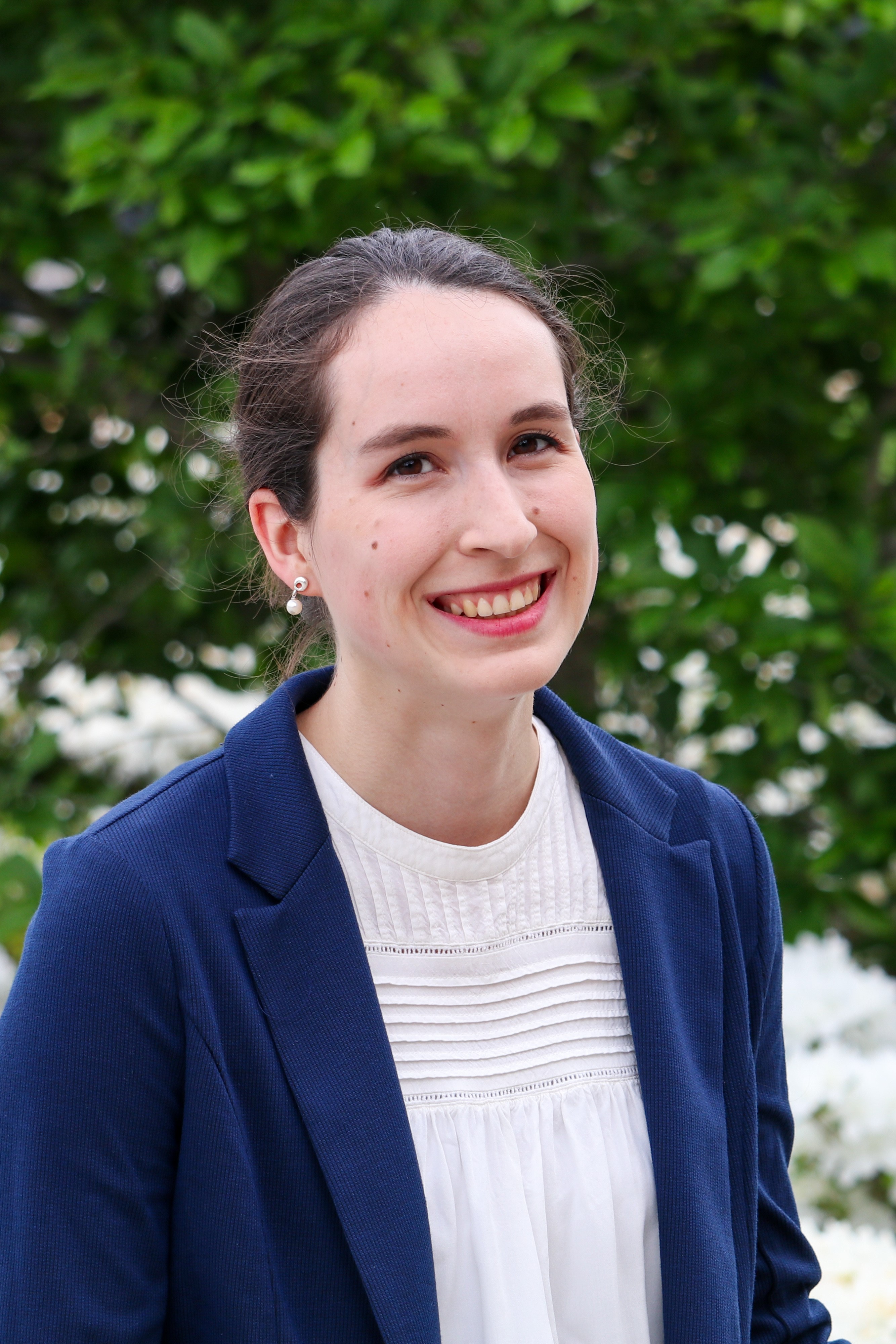Monte Carlo Simulation of Electron Transport in Silicon
Helen McDonough
Graduate Student
The Catholic University of America
Wed, October 27, 2021 - 4:00 PM
Karl Herzfeld Auditorium of Hannan Hall - Rm 108
 The Monte Carlo technique has been used to simulate the motion of charge carriers in solids since it was proposed as a possible method of solution for the Boltzmann transport equation at the Kyoto Semiconductor Conference in 1966. The semiclassical Monte Carlo method for charge transport simulation is a powerful tool to bridge the gap between abstract models and materials. Close correspondence of this model to processes occurring in the motion of the particle makes this method both intuitive to understand and tailorable to a specific problem.
The Monte Carlo technique has been used to simulate the motion of charge carriers in solids since it was proposed as a possible method of solution for the Boltzmann transport equation at the Kyoto Semiconductor Conference in 1966. The semiclassical Monte Carlo method for charge transport simulation is a powerful tool to bridge the gap between abstract models and materials. Close correspondence of this model to processes occurring in the motion of the particle makes this method both intuitive to understand and tailorable to a specific problem.
Despite simplicity of understanding, this method allows for sophisticated models, allowing, for example, the simulation of analytical band structures, or the inclusion of complex scattering mechanisms and different device geometries. The complexity of the model may be tailored to one's needs, for example, the band structure may be represented by a simple spherical parabolic function or by a warped function, allowing the effects of warping on transport properties such as the conductivity to be examined. Such simulations allow for the calculation of transport properties such as the average electron energy, drift velocity, mobility, diffusion coefficient, conductivity, Seebeck coefficient and electronic thermal conductivity for various materials. In light of this, we have created an initial Monte Carlo simulation of electron transport
in Arsenic doped Silicon under the influence of an electric field using Mathematica. The model includes elastic acoustic phonon scattering and ionized impurity scattering.
In this talk, I will provide background about energy band structures and other concepts from solid state physics, and discuss their implementation in our simple Monte Carlo transport simulation.
If you have any questions about the Colloquium Series or would like to make a donation please contact the Physics Department, cua-physics@cua.edu or (202) 319-5315.
